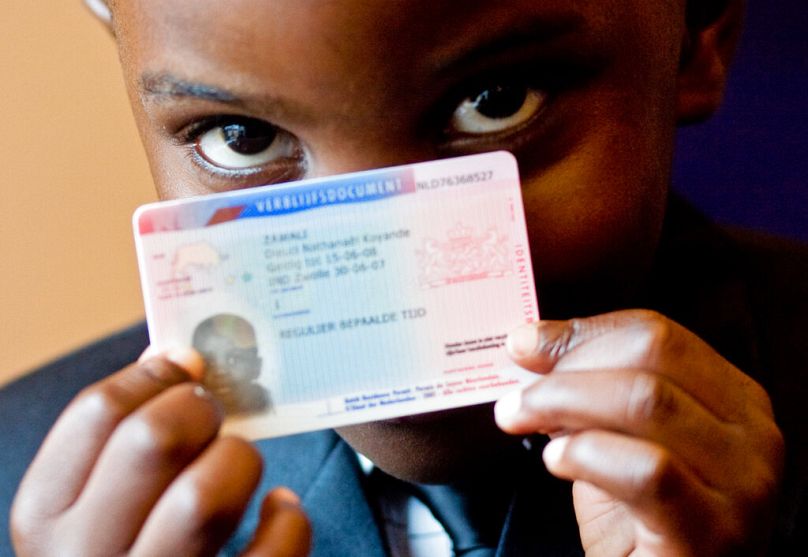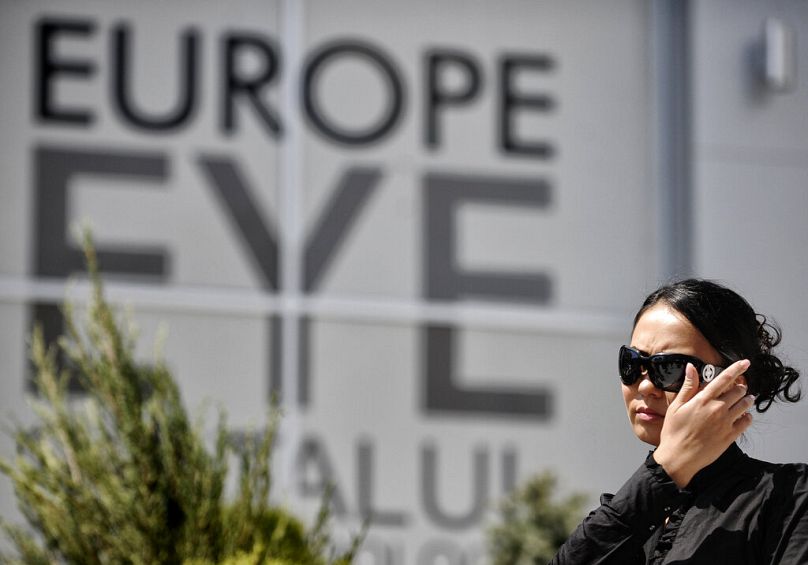The EU wants to make facial recognition history — but it must be done for the right reasons
Whilst civil rights activists have long called for an outright ban, certain EU lawmakers may see the AI Act as an opportunity to claim that they are doing the (human) right(s) thing — and actually doing the opposite.
In June 2023, the European Parliament made history when it voted in favour of a total ban on live facial recognition in public spaces.
Through the new artificial intelligence bill, the EU could stop companies and authorities from treating us all as walking barcodes. But pressure from EU governments threatens to transform this possibility into the stuff of George Orwell’s nightmares.
Since late summer 2023, EU governments and parliamentarians have strived to reach an agreement on the Artificial Intelligence (AI) Act. This landmark law has promised that the EU will become a world leader in balancing AI innovation with protection — but the reality is less optimistic.
EU lawmakers are debating throughout November about how much leeway to give police to use public facial recognition.
Despite these systems having been tied to human rights violations around the world, and recently condemned by Amnesty International for facilitating Israel’s system of oppression against Palestinians, the European Parliament’s commitment to a strong ban is at risk.
The commodification and abuse of our most sensitive data
In the last decade, information about every facet of our physical being — the faces, fingerprints, and eyes of practically every person worldwide — has become common currency.
This information — known as biometric data — is a mathematical representation of the most minute and intimate details and characteristics that make up who we are. From the vibrancy of human difference, we are collectively boiled down to a string of 1s and 0s.
Biometric data have been used in recent years to surveil and monitor people, from trying to suppress and scare pro-democracy protesters in Hong Kong and Russia to persecuting Black communities in the US.

Even seemingly mundane uses, like in national identity documents, have in fact turned out to be great enablers for systems which scan people’s faces and bodies without due cause — a move that amounts to biometric mass surveillance.
Whilst the EU presents itself as a beacon of democracy and human rights, it has of course not been immune to practices which amount to biometric mass surveillance.
Transport hubs in Germany and Belgium, protesters in Austria, people going about their day in the Czech Republic, people sleeping rough in Italy and many, many more have all been subjected to public facial recognition surveillance.
Most recently, France made its aspirations for biometric mass surveillance clear, passing a law to roll out automated surveillance systems for use at the upcoming Olympic and Paralympic games.
A wolf in sheep’s clothing
Human rights advocates have long argued that using people’s faces and bodies to identify and track them at scale already runs contrary to EU human rights and data protection law.
Whether in live mode or used retrospectively, notoriously unreliable and discriminatory public facial recognition infringes massively on our human rights and essential dignity.
But the use of such systems — often under vague claims of “public safety” — is widespread, and legal protections against them are patchy and applied inconsistently.

The AI surveillance industry has all but told lawmakers: “For national security reasons, we cannot disclose evidence that these systems work, but we can assure you that they do”. What’s worse is that lawmakers seem to be taking their word for it.
Whilst civil rights activists have long called for an outright ban, certain EU lawmakers may see the AI Act as an opportunity to claim that they are doing the (human) right(s) thing — and actually doing the opposite.

